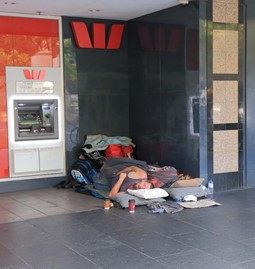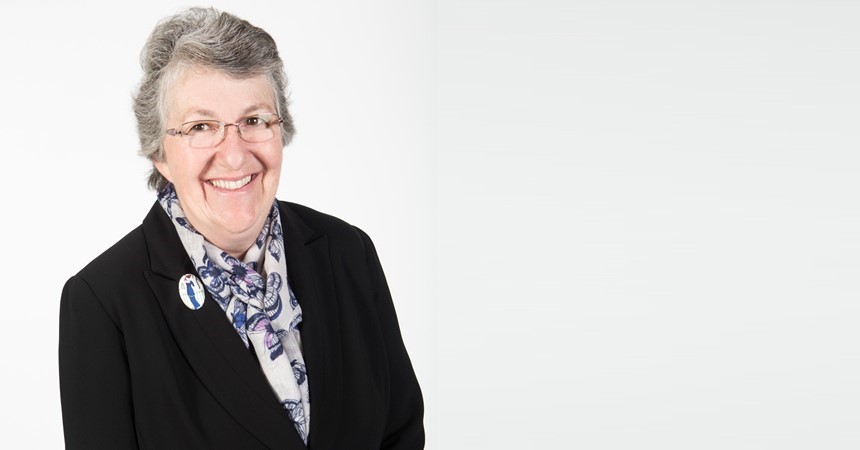In this weekend’s Gospel from John (6:24-35), we are reminded about Jesus being the bread of life:
I am the bread of life.
He who comes to me will never be hungry;
He who believes in me will never thirst.
A couple of weeks ago. the Gospel story from Mark reminded us about being nourished by the ‘bread’ of the Word; last week it was real bread that we are given to sustain us daily (Give us this day our daily bread) and this week it is the bread from heaven that feeds us with spiritual food. This trilogy of readings serves to remind us that the food for our body and soul comes from God, the sustainer of all life.
Presently, I am assisting with the training program for the Hunter Community Alliance (HCA). This Alliance consists of leaders from community, non-profit, environmental organisations, unions, and religious groups who come together around issues. It is a nonpartisan group of organisations who are passionate about working together to make a difference.

As I have indicated previously, it is good for us to be in this space, because it takes faith outside the confines of being in Church. What I am discovering is the interest that people, who are training, have in finding out more about people of faith, often because of their own previous experiences or possible misunderstandings of what it means to be religious. Part of being a trainer is to share your story, and why you do what you do, and why your organisation, in my case the Catholic Church, is involved in the Alliance. I think people are genuinely shocked that the Catholic Church is engaged, because of our call to be part of the community and to work with others for the common good. Our imperative towards social justice, and to journey with those who are marginalised, to genuinely care and to make a difference has not been their experience.
Presently, the Hunter Community Alliance is involved in a campaign around homelessness and affordable housing. One man in the room yesterday vocally expressed his wish to now explore his lapsed Catholic faith, because of what he was hearing and experiencing.
Since last October the leaders of the Alliance have been listening deeply within our communities, to identify key themes, with a view to identifying realistic, concrete solutions to these emerging issues. The following issues were identified as part of the listening campaign:
Housing: includes people who are homeless and at risk of homelessness and the struggles to find emergency housing or longer-term rental housing
Poverty: people in need of food and shelter, a contributing factor in homelessness stories
Domestic Violence: personal experience of DV, and those people working to support victims. This was often a contributing factor to homelessness
Climate Change: stories of anxiety and fear about the present and future; includes suffering from drought, heatwaves, coal mining and its pollution
Community Activation: people wanting more from the community, and often in response to issues such as climate and poverty; and people of faith trying to rejuvenate their congregations
Disadvantage and Disability: people struggling because of inequality, public places and systems that are not equally accessible for all; community stigmatisation; most stories also related to housing issues.
So, from this list of concerns and issues, the following have become part of the Hunter Community Alliance’s ask of policy makers:
- Provision of affordable housing;
- Concern for those experiencing poverty, homelessness and the risk of homelessness;
- The health effects and concern for climate change.
As people of faith and members of the body of Christ, we are called to be in this space, with other groups who wish to make the world a better place for all of our brothers and sisters. I invite you to ponder our second reading for Sunday from the letter of St Paul to the Ephesians (4:17, 20-24)
I want to urge you in the name of the Lord, not to go on living the aimless kind of life that pagans live. Now that is hardly the way you have learnt from Christ, unless you failed to hear him properly when you were taught what the truth is in Jesus. You must give up your old way of life; you must put aside your old self, which gets corrupted by following illusory desires. Your mind must be renewed by a spiritual revolution so that you can put on the new self that has been created in God’s way, in the goodness and holiness of the truth.
This sounds very like the invitation from our Five Foundations Spiritual Framework, from Session Two of our Diocesan Synod. I believe we are being called to a different space, one that is inviting us to reach out, to be in the marketplace of the lives of those who live in our neighbourhoods, many of whom would be searching for and hungering for the ‘bread of life’.
And to finish this week’s message, I share with you part of Richard Rohr’s reflection from Saturday 31 July:
Each day at the CAC we begin our morning sit by repeating a line from Psalm 46:10: “Be still and know that I am God.” With each repetition, we drop a word from the verse until we finally say only “Be,” before entering the silence together. It is a reminder that no matter how we arrive that day, we are called to be, and be still, before God.
Be still and know that I am God!
Be still and know that I am!
Be still and know!
Be still!
Be!
At the beginning of each day this week, I invite you to pray yourself into stillness.
Teresa Brierley
Director Pastoral Ministries
3 August 2021

